Inclusivity in the Modern World: Reframing Our Work for Impact and Sustainability
In recent years, the national landscape around diversity, equity, and inclusion (DEI) has shifted dramatically. What was once broadly supported is now under intense scrutiny. Efforts that focus on specific communities—especially those historically excluded—are increasingly questioned or challenged, and in some cases, considered controversial or even unlawful. As someone who has spent years building inclusive spaces for underrepresented groups in academia, I’ve had to reflect deeply on how to evolve this work while staying true to its mission.
My journey began with iMCB (inclusiveMCB), a DEI initiative at UC Berkeley that I co-founded to support students from underrepresented minority (URM) backgrounds in the Dept. of Molecular and Cell Biology (MCB) (Figure 1). The initiative provided training opportunities for faculty, promoted cultural humility, and fostered organic student-faculty connections based on shared values. In partnership with the Multicultural Education Center, we hosted faculty workshops focused on allyship and cultural humility, followed by low-pressure student-faculty meet-and-greets. These events laid the foundation for more inclusive mentoring relationships.
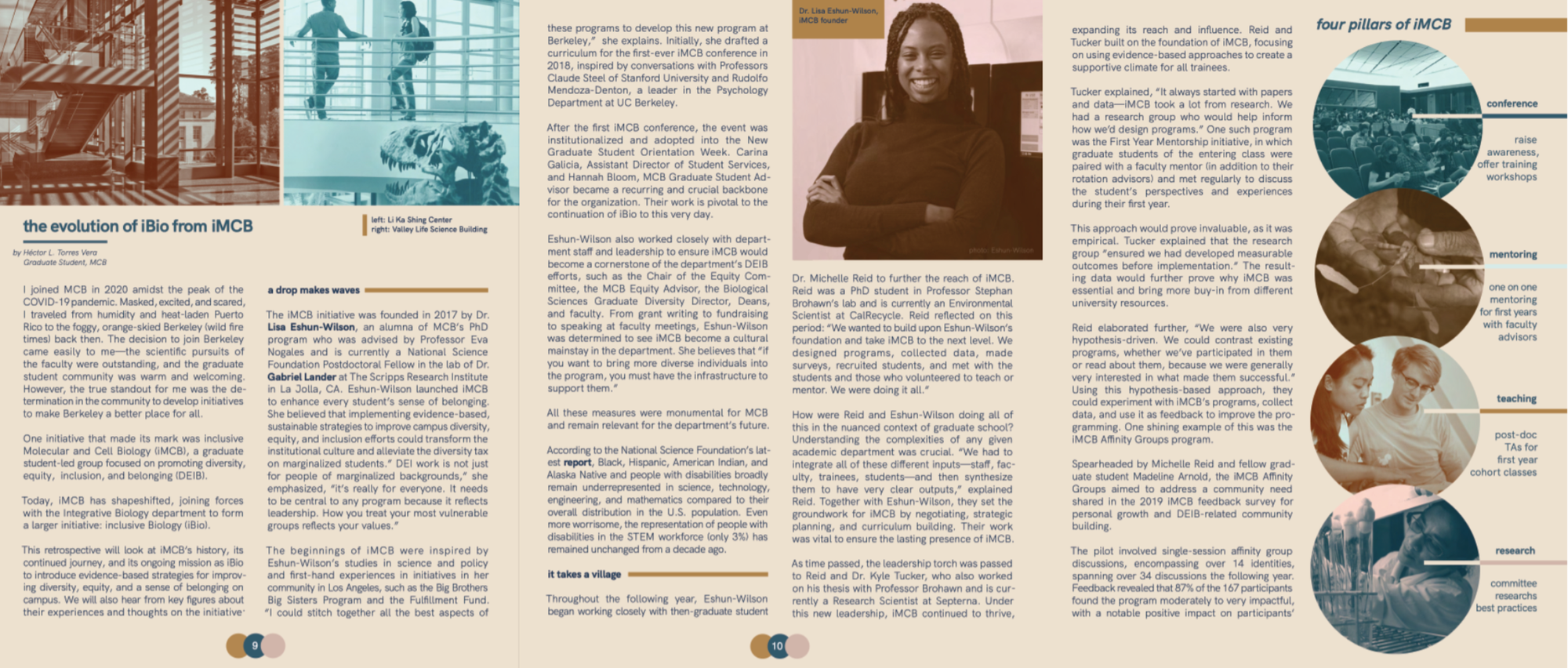
One of our flagship events, the Annual iMCB Conference, asked students to consider how they could navigate the traditional academic path while remaining their most authentic selves (Figure 2). In our internal assessments, we found that these efforts made a tangible difference: after just one year, the number of first-year students who felt “comfortable” or “very comfortable” expressing themselves with faculty doubled from 21% to 44%. Similarly, students’ comfort connecting with peers jumped from 34% to 60%.
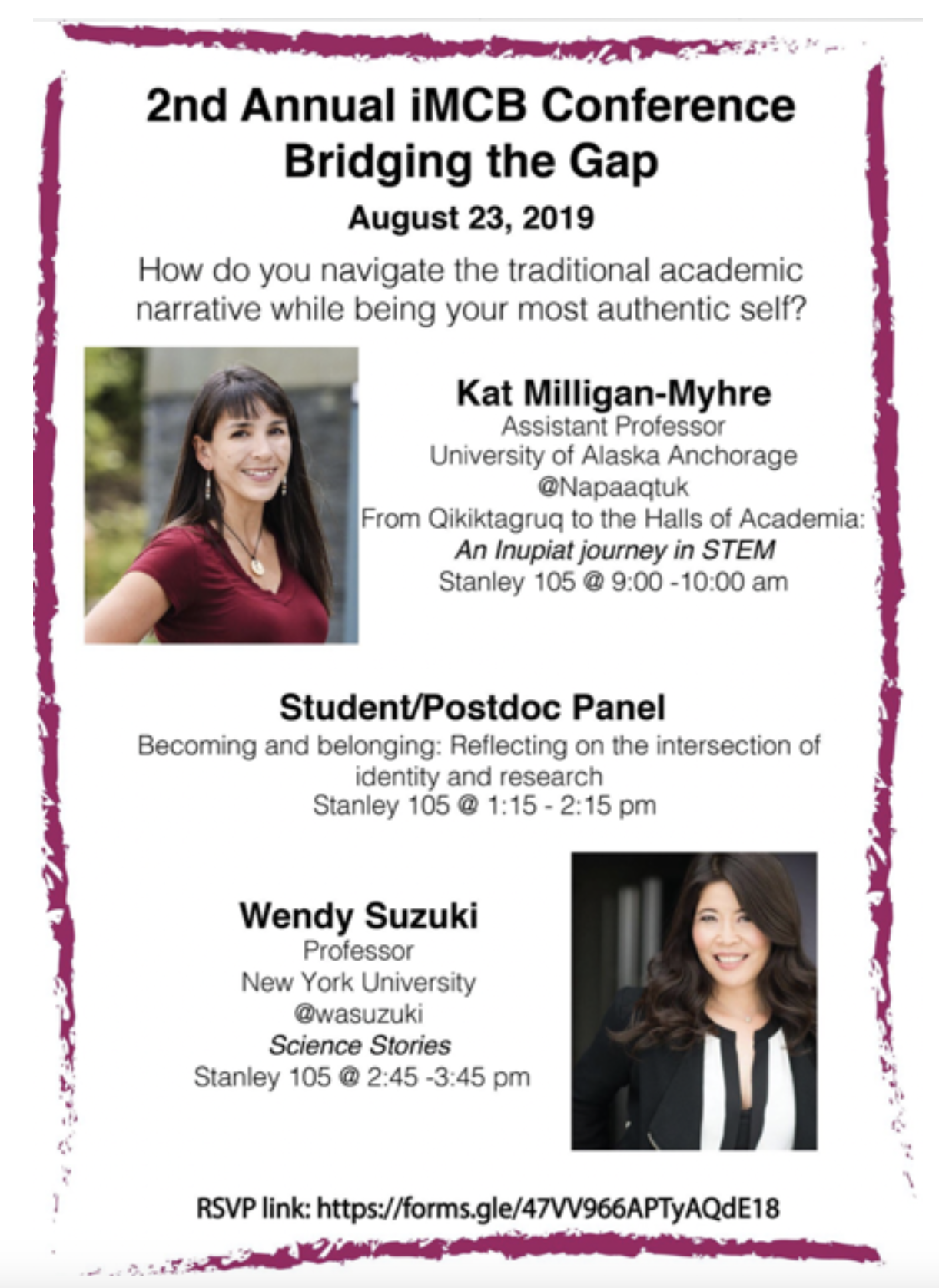
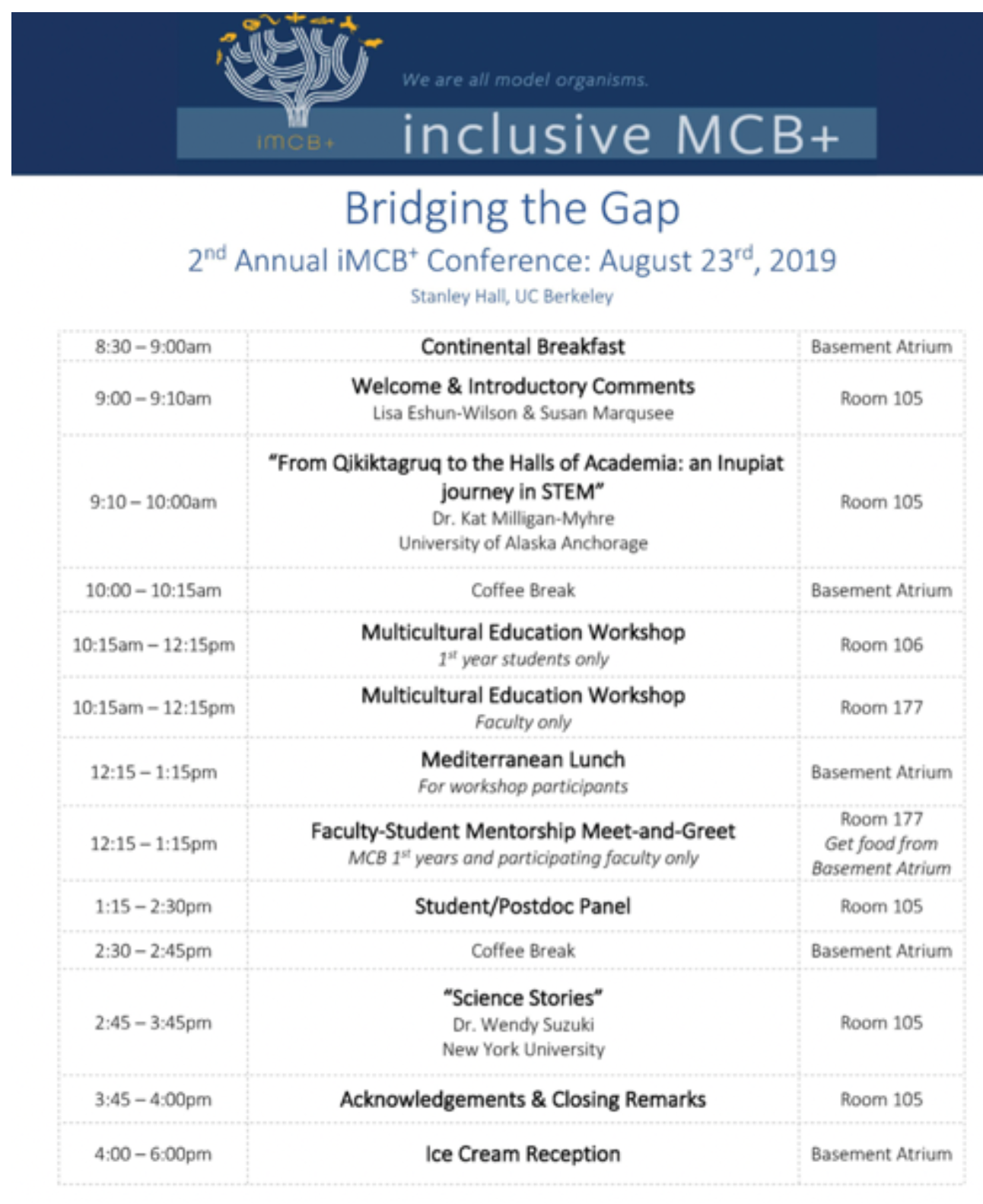
Figure 2. Promotional materials for 2nd Annual iMCB Conference at UC Berkeley.
By Year 3, in 2020, the virtual conference attracted 300 attendees and drew in a talented team of student leaders who elevated our programming and data collection. Thanks to the efforts of Michelle Reid, Kyle Tucker, and Madeline Arnold, we were able to disaggregate data and better understand how different groups experienced the events by sourcing validated methods by Dr. Mica Estrada. One key finding stood out: while all students benefited, URM students found particular value in the small-group affinity spaces (Figure 3). In fact, 70% of URMs versus 40% of non-URMs reported them as the most impactful (Figure 4). These groups allowed students to express their values, build community, and share their cultural identities without fear of judgment.
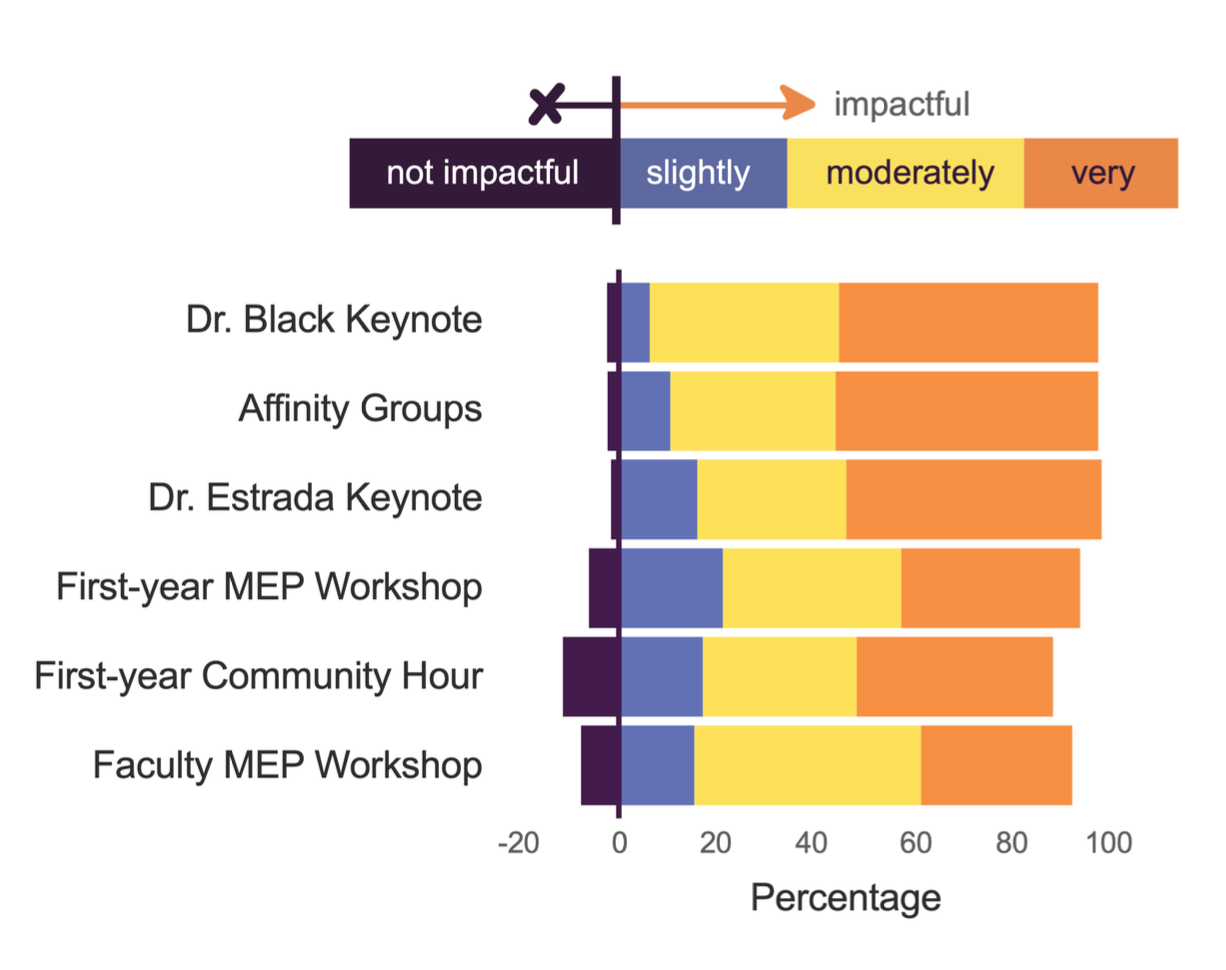
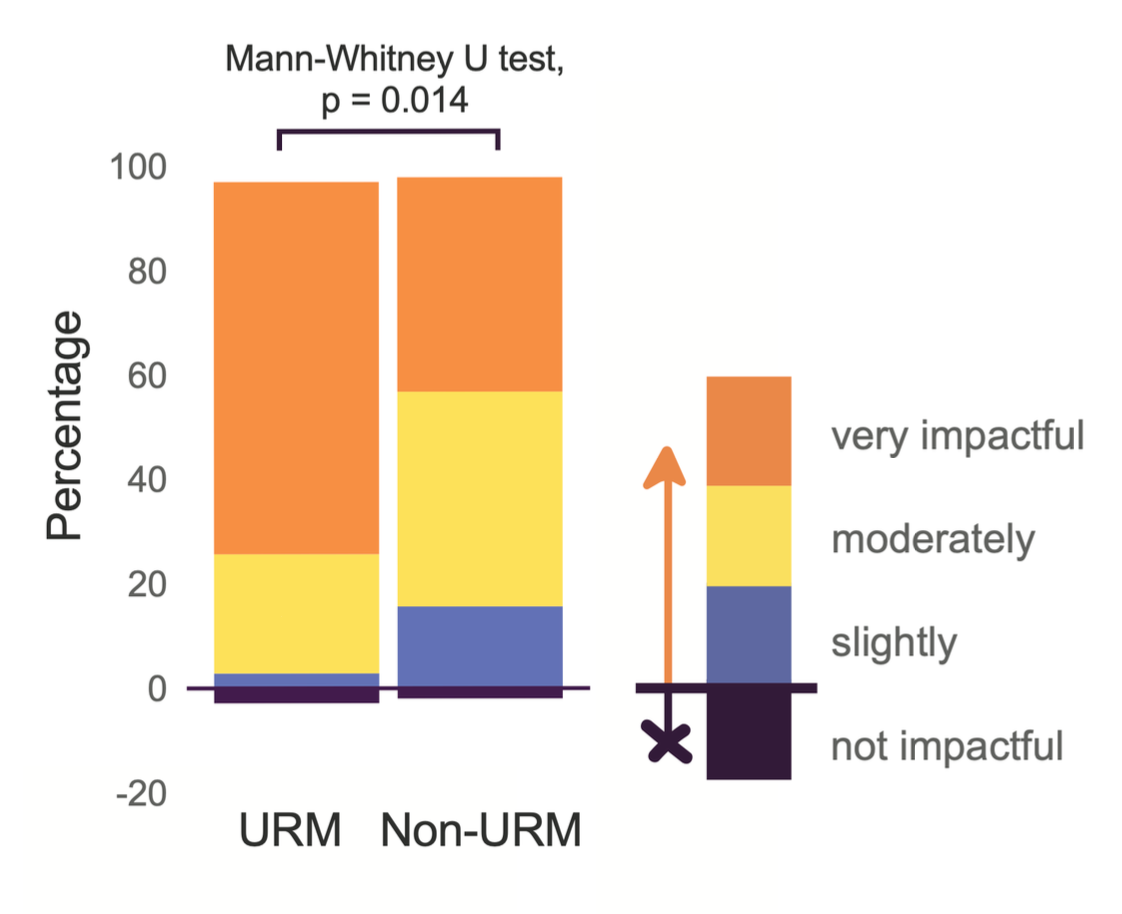
At the heart of iMCB, now iBio, is a philosophy that we now call "proculturation"—a constructive synthesis of ideas and identities. Rather than asking students to assimilate into a dominant culture, we create space for them to integrate their full selves into academic life. This idea is particularly important to me as someone born in Norway with Czech and Ghanaian heritage and grow up in LA - I learned to live and breath this philosophy at a young age to feel whole. And while our early focus was on uplifting URM students, our approach is grounded in the belief that shared values—not just shared identities—can be a powerful basis for connection.
This belief became the foundation for my next venture: inclusiveScripps (iScripps), an initiative to support international postdoctoral scholars who identify as women while engaging the broader Scripps community. With nearly 75% of postdocs at Scripps being international and 33% identifying as women, many face compounded challenges at the intersection of gender and immigration—especially in today’s political climate. Our inaugural iScripps conference featured Dr. Tom Cech and a postdoc panel that spotlighted these issues and encouraged open dialogue across the research community (Figure 5). In partnership with the Career and Professional Development Office, we also aim to launch “Office Hours,” a mentoring program that connects postdocs with faculty, staff scientists, and active allies to foster long-term, supportive relationships.
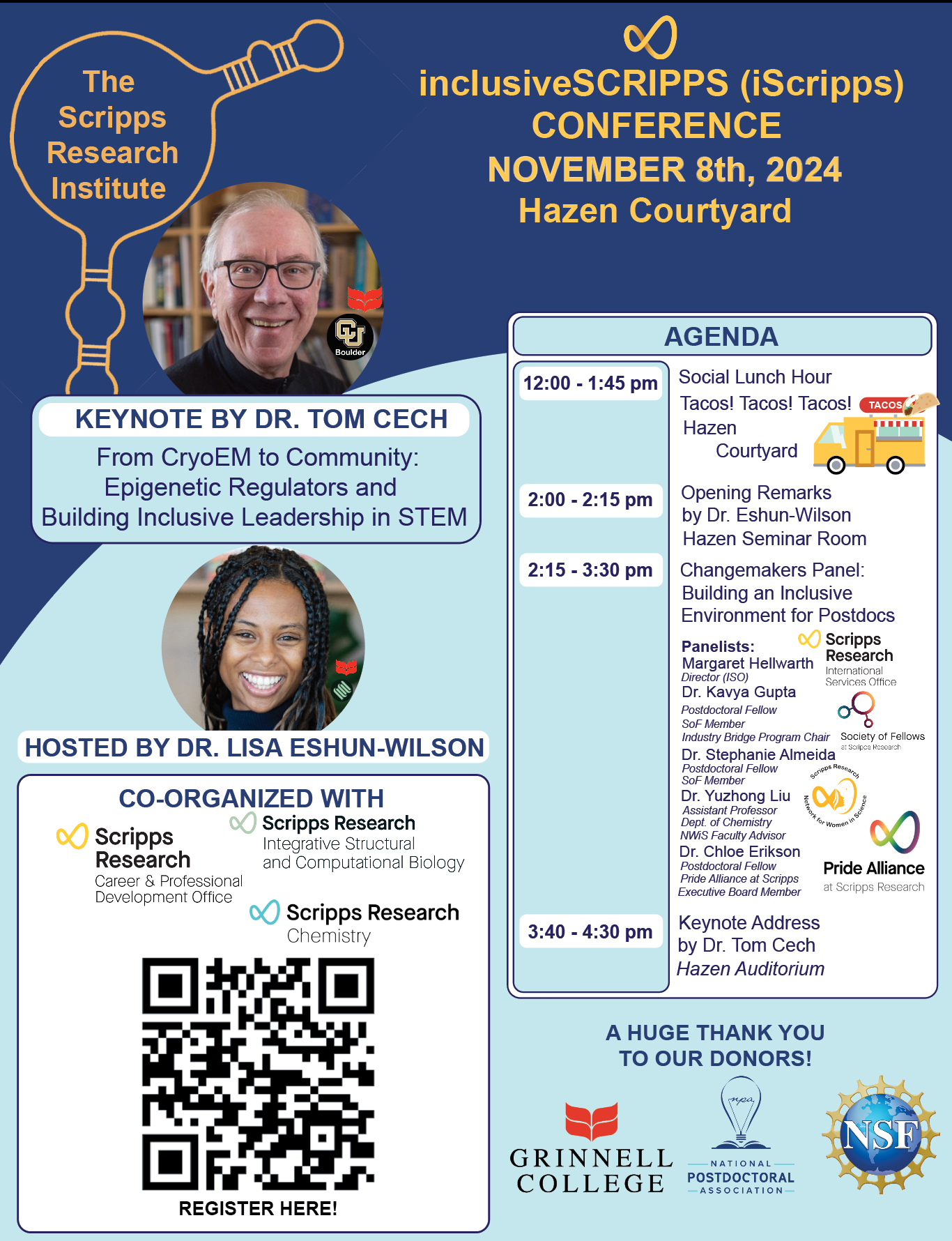
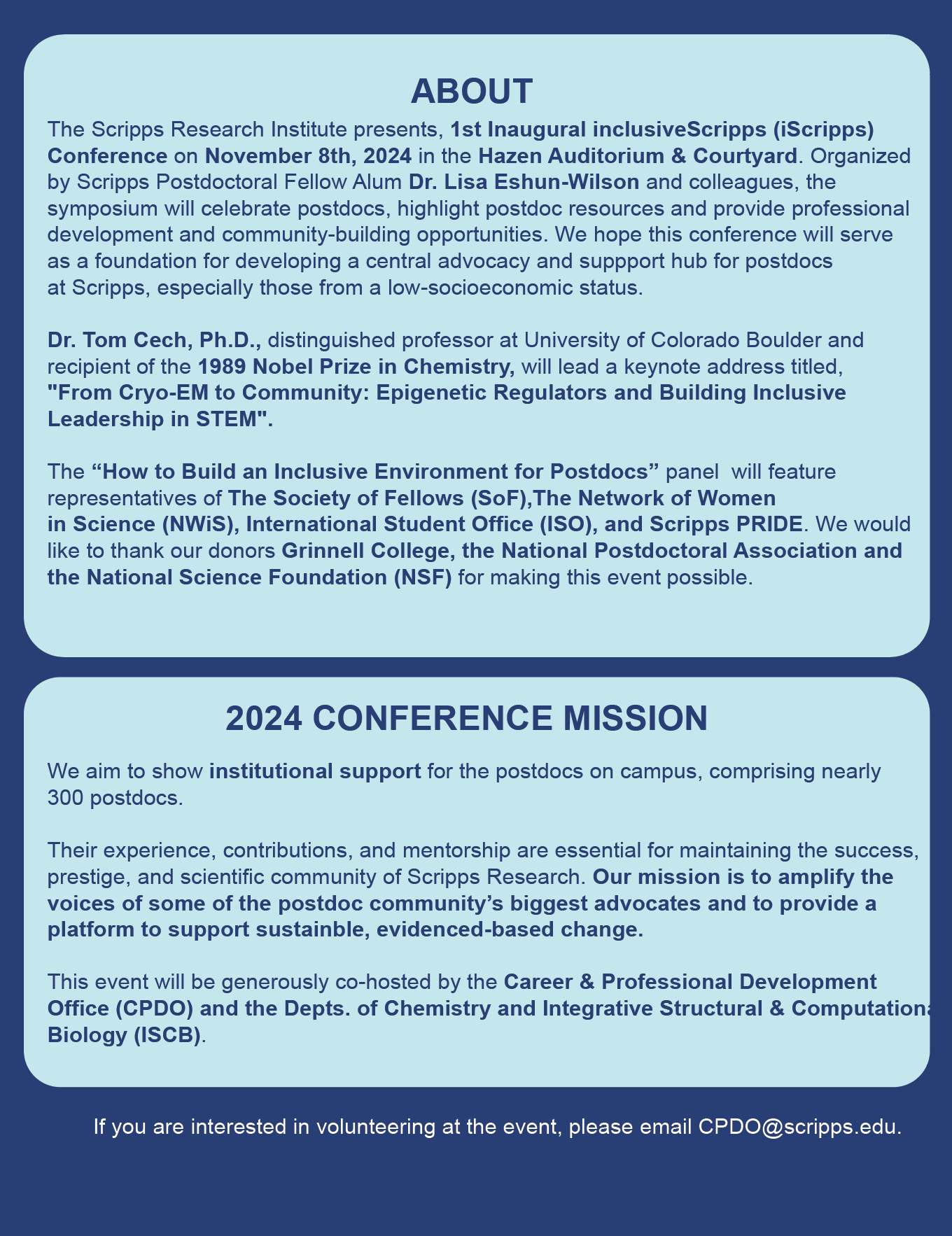
Figure 5. Promotional materials for the 2024 Inaugural iScripps Conference at the Scripps Research Institute in La Jolla, CA.
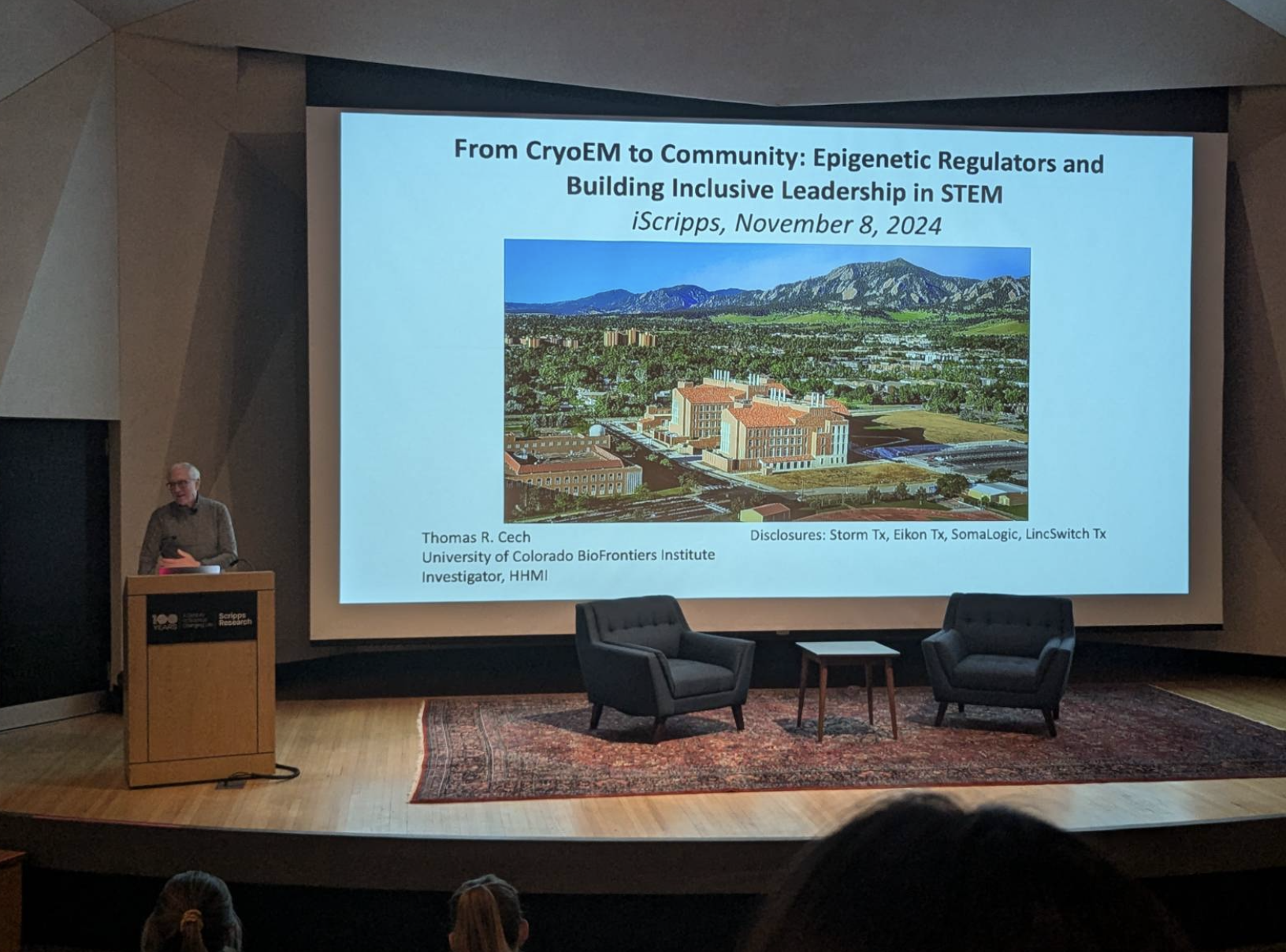
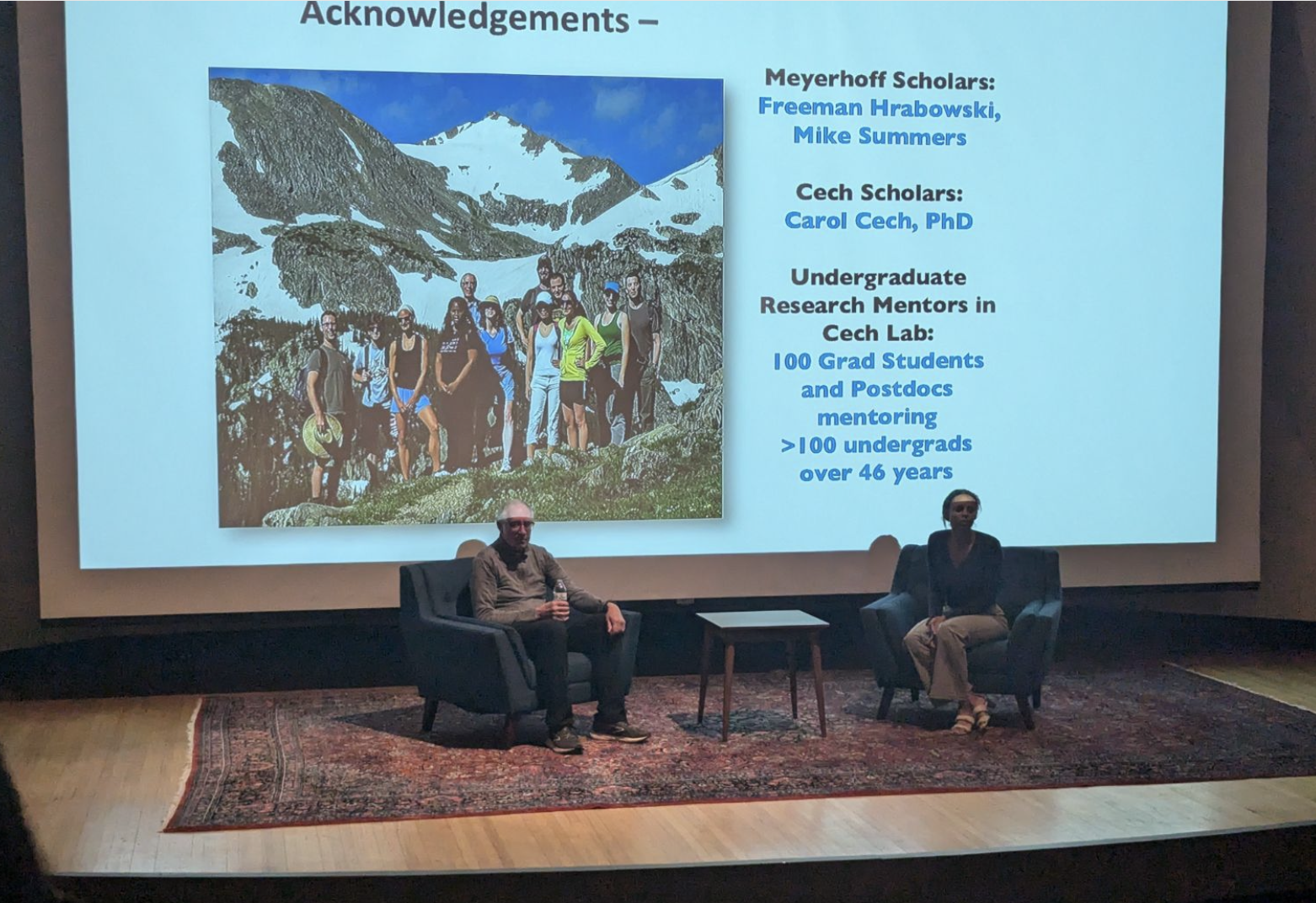
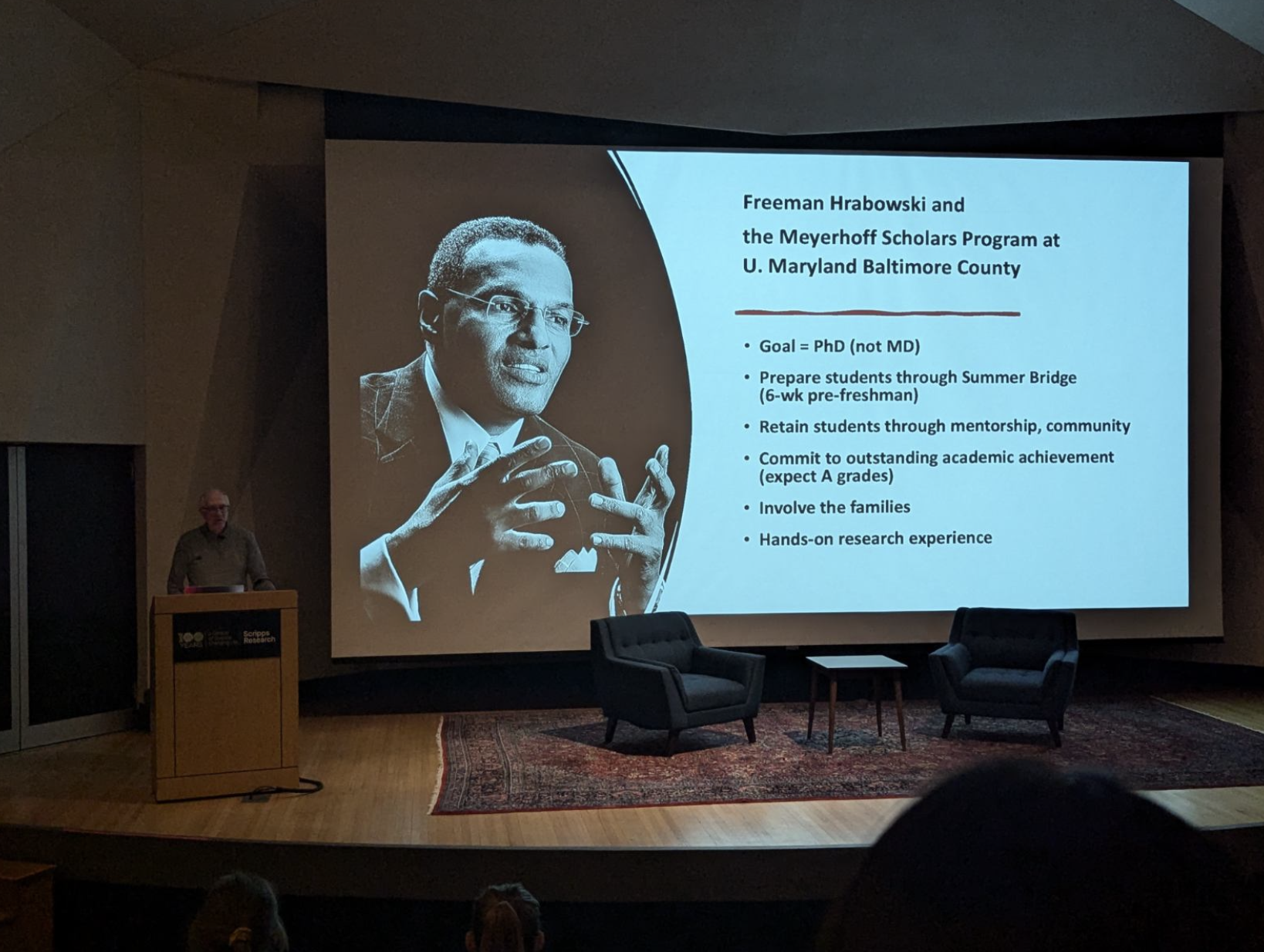
Photos from the event in November 2024 in La Jolla, CA.
Moving forward, I want to be clear: DEI work is not about exclusion. Centering the experiences of women, or of any historically marginalized group, does not mean sidelining others. Rather, it means recognizing the unique challenges some groups face and working collectively to address them—while remaining open, inclusive, and attentive to the broader community. We want to build systems that work better for everyone by starting with those most often left out.
In a climate where DEI work must navigate new political and institutional realities, it’s crucial to reframe our methods—not our mission. To move the field forward, we must also be critical of efforts that lack evidence-based impact or rely too heavily on identity without fostering true affinity and shared purpose. This reflection allows DEI to evolve into a more effective, inclusive, and sustainable practice. We must emphasize that inclusion is not a zero-sum game. We can center specific values and still embrace a wide community. By focusing on shared purpose, cultural humility, and collaboration, we can create spaces where all people—not just some—can thrive.
This is how we move from performative inclusion to transformative impact. And this is the kind of work I am committed to continuing with clarity, compassion, and care.
Thank you,
Lisa

